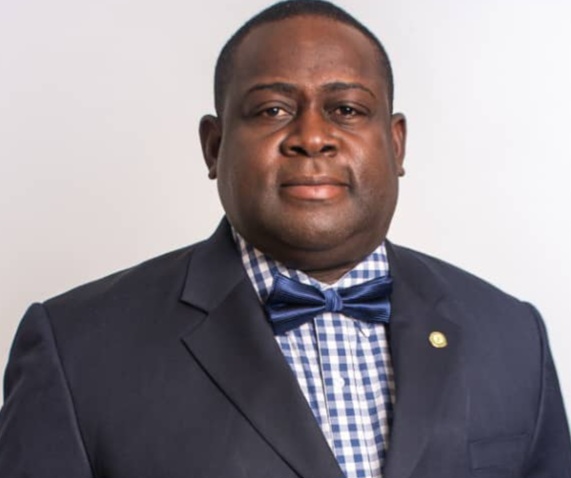
By Mohammed Tsav
President Bola Ahmed Tinubu’s administration [i.e. PBAT], has again been marred by controversy surrounding his appointments to government positions. A cursory glance at the lists of appointees reveals a disturbing trend of lopsided appointments, with a disproportionate number of Yoruba individuals given key positions. This phenomenon has ignited widespread criticism, with many Nigerians expressing concerns about the implications of such an approach on the nation’s peace, unity, diversity, and development. President Bola Ahmed Tinubu’s appointments have been criticized for perceived nepotism and tribalism, with a disproportionate number of Yoruba individuals appointed to key positions. This has sparked concerns about meritocracy, diversity, and representation. These appointments are neither disguised nor repentant in the circumstances.
Lack of Representation and Diversity: One of the primary criticisms of PBAT’s appointments is the glaring minimal diversity and representation from other regions. Nigeria is a multi-cultural and multi-ethnic nation, with over 250 ethnic tribes and a very diverse multiple population. However, the appointments made by PBAT seem to suggest that the country is a mono-cultural entity, with the Yoruba ethnic group dominating the government redefining Nigeria as the “Yoruba Republic of Nigeria”. This lack of diversity and representation is not only unfair but also undermines the principles of federal character, national unity and integration. There is a lack of diversity and representation from other regions in the midst of over 250 tribal nations in Nigeria. Is PBAT suggesting that only the Yoruba tribe has competent and qualified manpower in Nigeria?
Over-emphasis on Tribal Loyalty: The appointments also raise questions about the president’s priorities. It appears that tribal loyalty has taken precedence over merit and competence. This approach is detrimental to the nation’s development, as it suggests that appointments are based on ethnic considerations rather than capacity and the ability to deliver results. The consequences of such an approach are far-reaching, with potential implications for the nation’s peace, stability, security, and economic development. The fact that his predecessor President Muhammadu Buhari exhibited such negative inclinations, we expect PBAT to do more and lay better precedence at this point in time in the development of the Federal Republic of Nigeria or should the country now be called the “Yoruba Republic of Nigeria”, as “e mi lokan” automatically now translates to “awa lo kan”. Is the Nigerian Presidency a tribal affair?
Ignoring Competence and Meritocracy: A key principle of good governance is meritocracy, where appointments are based on merit and competence. However, President Tinubu’s appointments seem to suggest that other factors, such as nepotism, political party connections, family interests, and ethnic affiliation, are being prioritized over merit and capacity. This approach undermines the principles of fairness, justice, and good governance. There is overemphasis on tribal and political party loyalty over merit and competence. It raises questions about the PBAT’s will and commitment to building competent and effective government institutions. We have had very embarrassing stories and scandals of some of the president’s appointees. It is self-explicit that since PBAT to over the presidency of Nigeria, all aspects of Nigeria has been deteriorating further from where he met them. With these lopsided appointments there is a potential for unequal distribution of opportunities and resources in government. Is there something amiss with his appointed lieutenants?
Implications on National Unity: The lopsided appointments also have implications for national peace and unity. Nigeria has a history of ethnic tensions and conflicts, and the perception that one ethnic group is dominating the government can exacerbate these salient tensions. The appointments made by PBAT have the potential to create resentment and mistrust among other ethnic groups, which can have far-reaching consequences for the nation’s stability and security in the long run. Nigeria belongs to all Nigerians, whether dead, living or yet unborn. Nigeria should be harnessed in such a way that the Federal Republic of Nigeria shall be stable, secure and prosperous for all Nigerians. PBAT’s appointments do not portray him as a president of Nigeria but as a president of the Yoruba tribe. These lopsided appointments have negative impact on national peace, unity and cohesion.
Conclusion: In concluding, President Bola Ahmed Tinubu’s lopsided appointments of Yoruba people to government positions are a serious cause for concern for all well-meaning members of the Nigeria public. The lack of diversity and representation, overemphasis on tribal loyalty, and undermining of meritocracy and competence are all issues that need to be logically addressed. The president must take steps to ensure that his appointments reflect the diversity of Nigeria and are based on merit and competence.
PBAT, in addressing the concerns raised, the following recommendations are made:
i. Ensure diversity and representation: The president should ensure that appointments reflect the diversity of Nigeria, with representation from different regions and ethnic groups.
ii. Prioritize merit and competence: Appointments should be based on merit and competence, rather than ethnic affiliation or other considerations.
iii. Adhere to federal character: The president should adhere to the principles of federal character, ensuring that appointments are made in a way that reflects the diversity of Nigeria. iv. Transparency and accountability: The appointment process should be transparent, with clear criteria for selection and evaluation.
By following these recommendations, President Tinubu can build a government that is truly representative of Nigeria’s diversity and committed to delivering results for all Nigerians. Anything less would be a disservice to this nation and all true Nigerians. A more balanced approach should prioritize merit, competence, and diversity, ensuring that appointments reflect Nigeria’s rich cultural and regional diversity.
Tsav is a lawyer and writes from Abuja

Join the Conversation